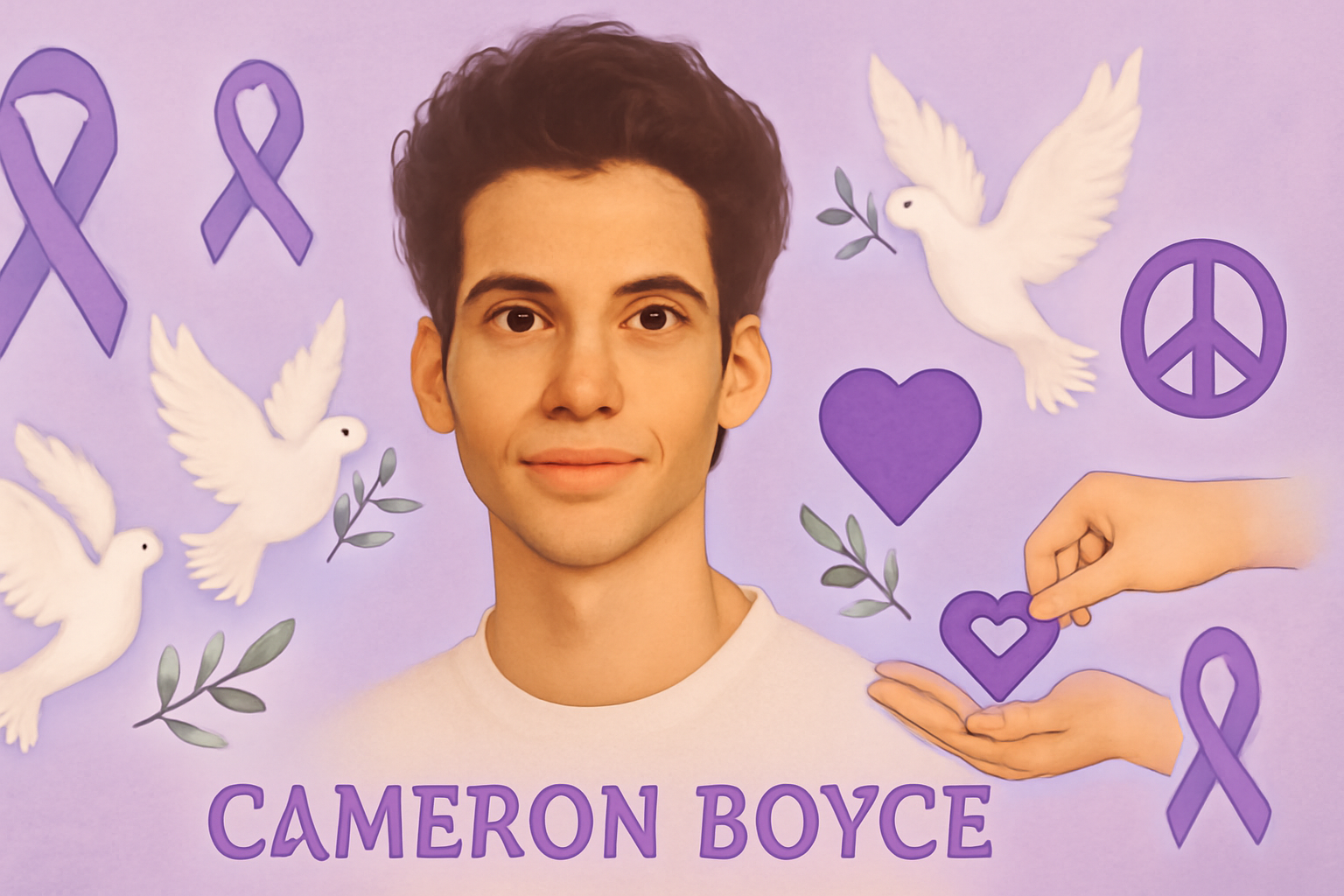Cameron Boyce was more than a Disney Channel star. During his brief yet impactful life, Boyce inspired millions around the world with his talent, infectious charm, and philanthropic spirit. His untimely death at just 20 years old in July 2019 shocked fans and highlighted a rarely discussed medical risk: Sudden Unexpected Death in Epilepsy (SUDEP). Understanding his life and the circumstances surrounding his passing helps illuminate both the legacy he left and the medical condition many still do not fully understand.
A Life in the Spotlight
Born on May 28, 1999, in Los Angeles, Cameron Mica Boyce was destined for a life in entertainment. He grew up in a diverse, artistic family—his mother, Libby Boyce, is Jewish, and his father, Victor Boyce, is African-American, with Caribbean roots. Cameron often spoke about his mixed heritage, crediting his upbringing for fostering empathy and creativity.
Boyce began acting and dancing at a young age. His screen debut came in Panic! At the Disco’s “That Green Gentleman” music video in 2008. The same year, at nine, he appeared in the horror film “Mirrors” and the Adam Sandler comedy “Grown Ups” and its sequel. But it was Disney Channel’s “Jessie,” where he played the mischievous yet lovable Luke Ross, which made him a household name. From 2011 to 2015, Boyce’s comic timing, dance moves, and undeniable screen presence won the hearts of viewers across the globe.
He followed up with the leading role of Carlos, the son of Cruella de Vil, in Disney’s “Descendants” movie series. The immense popularity of the “Descendants” franchise elevated Boyce to teen idol status. Beyond his performances, Cameron was known for his humility and sincerity, forming close bonds with castmates and showing gratitude for his opportunities.
Beyond Acting: Dedication to Philanthropy
Cameron Boyce was not content with just professional success. He dedicated much of his energy to giving back, particularly to causes involving gun violence prevention and access to clean water. Boyce was a passionate supporter of the Thirst Project and helped raise thousands to provide safe drinking water around the world. He also took part in United Way’s HomeWalk to end homelessness in Los Angeles.
Not long before his passing, Boyce announced plans to launch the Wielding Peace initiative, working to curb gun violence. He described his inspiration for activism as a combination of personal encounters and a desire to honor his grandmother, Jo Ann Boyce, a civil rights activist and one of the “Clinton 12,” the first Black students to desegregate a public high school in the South.
Cameron’s Private Health Battle
Despite his public persona, Cameron largely kept his ongoing health condition private. He was diagnosed with epilepsy—a chronic neurological disorder characterized by recurrent seizures. Epilepsy affects roughly 65 million people worldwide, but many, including Boyce’s own fans and much of his community, were unaware he even faced the condition.
According to his family, Cameron had experienced only a few seizures prior to his death and was taking medication for epilepsy. Like many people living with epilepsy, he went about his daily life, pursuing his dreams, managing symptoms, and rarely sharing details about his medical status. For his family and friends, Cameron remained a symbol of positivity, seemingly undeterred by his diagnosis.
Tragic Passing and Medical Cause
On July 6, 2019, the world received devastating news: Cameron Boyce had died in his sleep at his Los Angeles home. The Los Angeles County Medical Examiner later determined the cause of death to be sudden unexpected death in epilepsy (SUDEP). He was just 20 years old.
SUDEP is a rare but fatal complication of epilepsy—typically occurring in patients whose seizures are not completely controlled. It refers to deaths that are sudden, unexpected, and not the result of injury, drowning, or other known cause. While the exact biological mechanism is unknown, researchers believe that changes in breathing, heart rhythm, or brain function following a seizure may lead to SUDEP, particularly during sleep. The risk of SUDEP is greatest in people aged 20 to 40 and with poorly controlled seizures, though it can affect anyone with epilepsy.
The Boyce family later shared that, although Cameron had been managing his epilepsy, they were unaware of the risks associated with SUDEP until the medical examiner explained them. Their openness raised public awareness of the condition—an important step, as SUDEP remains poorly understood even among the medical community.
Public Response and Legacy
The news of Boyce’s passing sent shockwaves through the entertainment world and among fans. Tributes poured in from costars, celebrities, Disney Channel, and the millions whose lives he touched. Many, such as Adam Sandler and Debby Ryan, shared touching personal stories and expressed heartbreak at the loss of such a joyful, generous spirit.
Following his death, the Boyce family launched The Cameron Boyce Foundation to honor his legacy. The organization supports causes close to Cameron’s heart: eliminating gun violence, providing clean water, and furthering epilepsy awareness. The foundation works to fund research, assist families, and educate the public about epilepsy and SUDEP—continuing the advocacy Cameron began during his lifetime.
Shining Light on SUDEP
Cameron’s death, though tragically premature, has helped shine a light on SUDEP and the realities faced by those living with epilepsy. According to the Epilepsy Foundation, SUDEP causes approximately 1 in 1,000 adult epilepsy fatalities annually. Increased awareness can help families, patients, and healthcare providers better understand the risks, improve seizure management, and advocate for research that may one day prevent such losses.
Conclusion
Cameron Boyce’s life reminds us of the power of art, compassion, and resilience. His work continues to inspire through the roles he played and the causes he championed. Though his time was brief, his legacy is enduring: one of talent, kindness, and the drive to make the world better. In remembering Cameron, we honor both his achievements and the importance of raising awareness about epilepsy and SUDEP, ensuring more lives are saved and more legacies live on.
